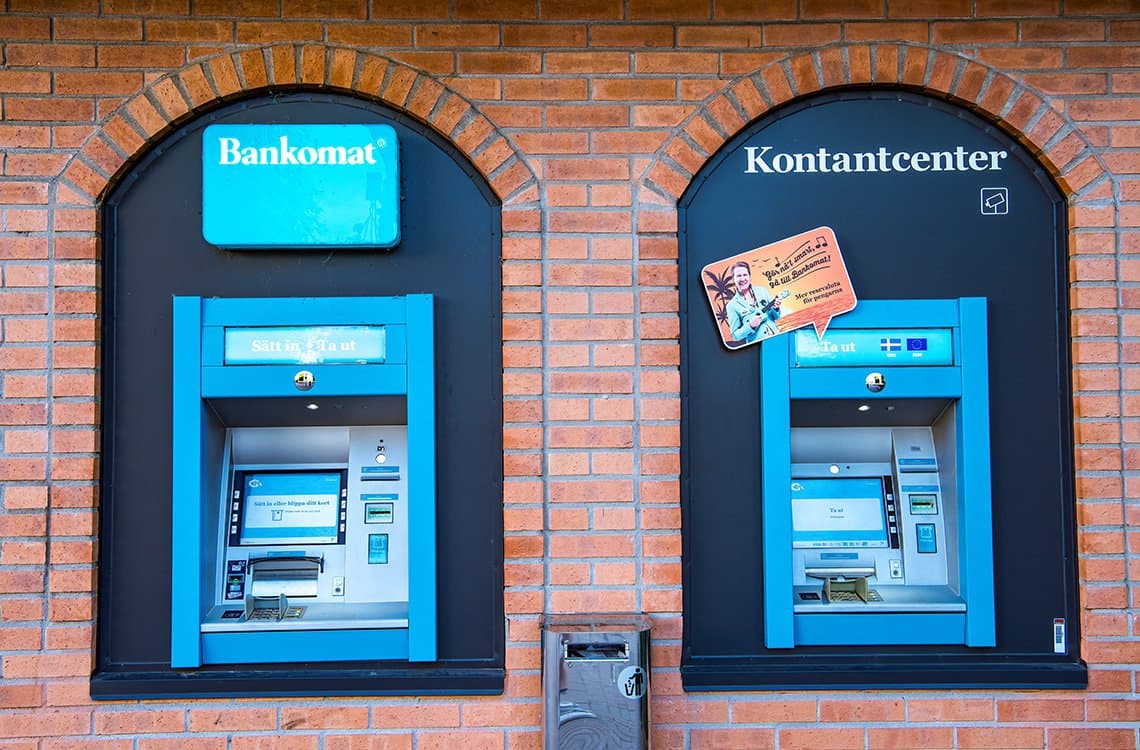
‘Cashless Ideal’ Sweden Reconsiders its Anti-Cash Stance
Sweden is often held up as the ideal of a cashless society, however a Bloomberg article explores how financial crime has surged in recent years, bolstered by digital transactions. This, and concerns around economic resilience, are prompting moves to reintroduce the balancing effects of cash.
The article—How the Dash to Ditch Paper Money Created a Playground for Criminals—by Niclas Rolander and Jonas Ekblom observes online fraud and digital crime have soared in recent years, with criminals taking 1.2 billion kronor in 2023 through cashless scams (around $114 million), double the figure from 2021. Law enforcement agencies estimate the nation’s criminal economy to currently be as high as 2.5 percent of GDP.
Ellen Bagley, selling on a popular second-hand clothing app, offers an example of how such criminals operate. She says she received a direct message on the platform requesting verification of personal details in order to complete her first sale. Clicking the link opened BankID, Sweden’s electronic identification system, and she rapidly started receiving error messages. Over 10,000 kronor ($950) had been removed from her account with one click.
Rolander and Ekblom say authorities are pressuring banks to tighten security measures, but add that ‘it’s a delicate balancing act’ since ‘going too far could slow down the economy.’
The association of cash and crime in Sweden emerged after a spate of armed robberies in the 1990s, with just eight percent of Swedes saying they had used cash for their last purchase in a 2022 Central Bank survey. Cashless payments were promoted as the answer to violent crime, and ‘that has been a strategic mistake,’ according to Daniel Larson, a senior economic crime prosecutor, who says ‘this profit-generating crime is what’s fuelling organised crime and, in some cases, leads to these conflicts.’
The Central Bank has also acknowledged ‘some of those [negative cash] connotations may have gone too far’, with Governor Erik Thedéen telling Bloomberg: ‘We have to be very clear that there are still honest people using cash.’
The damage, however, is done, and the rise of BankID—which operates like an online signature, immediately authorising transactions—‘plays a role in Sweden’s vulnerability.’ While it was designed to make electronic payments ‘even quicker and easier than handing over a stack of bills’, it removes the certainty of where a payment is going and adds opportunities for fraud on both sides.
Beyond financial crime, the move to cashless also leaves Sweden more vulnerable to infrastructure damage caused by natural disasters, attacks or simple mistakes occurring at third party companies that provide financial and internet services. The Central Bank has recently offered proposals to improve access to cash and ensure it is widely accepted to ensure payments remain resilient ‘in the event of peacetime crises and states of heightened alert.’ The proposals also recognise the importance of inclusivity, given there are still members of Swedish society who are unwilling or unable to engage with cashless payments.
Payments must work for everyone… We need legislation to ensure cash can be used to pay, and banks must ensure more customers have access to payment accounts.
The nation considered by some to be a ‘cashless ideal’ is demonstrating the benefits of keeping cash while expanding non-cash payment options, with the Central Bank saying ‘the state, including the Riksbank, and the private sector need to do more, not least to ensure that everyone can pay.’
[National resilience] requires, among other things, stronger legal protection for cash payments. For payments to remain safe, efficient and accessible, banks need to continue to prioritise modernising their infrastructure and making their payment services more inclusive.
